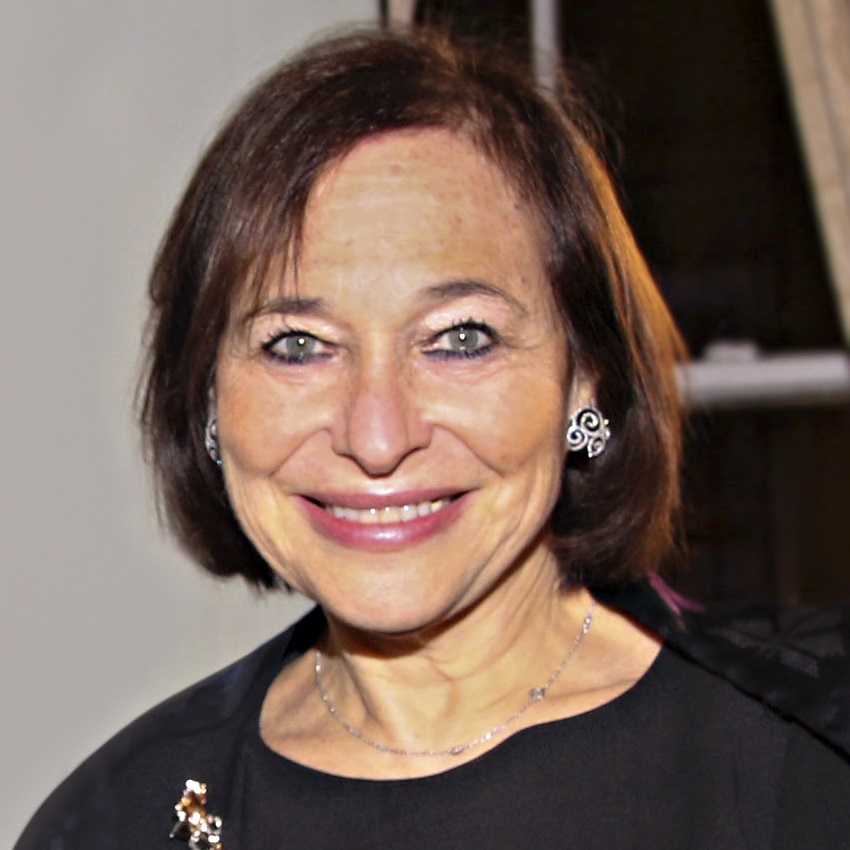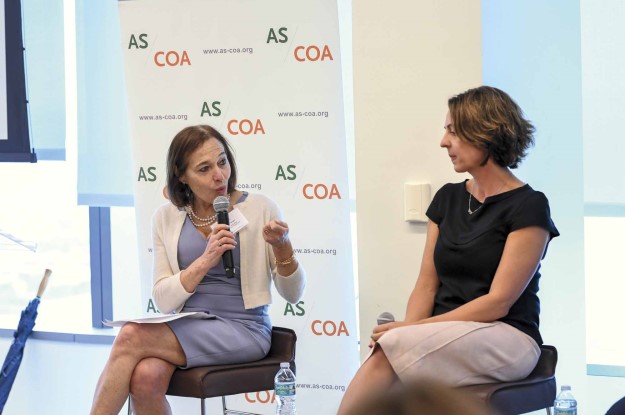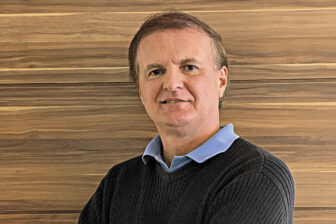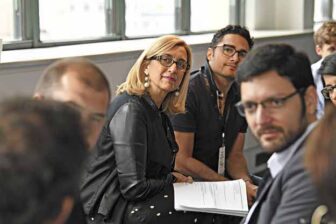This article is adapted from AQ’s special report on closing the gender gap | Leer en español
In 1979, at age 23, I was hired by Citibank right out of business school and immediately sent to Caracas as an international trainee. I had two years of high school Spanish under my belt, hardly any belongings, and no earthly clue about how a bank was supposed to work, in Venezuela or anywhere else.
Upon arrival, I left my bags at the hotel and proceeded directly to Citibank’s office to meet the human resources team, who would help me find an apartment, buy a car and so on. As I waited, I heard a voice: “Hello, my name is Theresa. Please come into my office so we can get to know each other!” Without realizing it, I had found my first mentor.
In those days, we didn’t call them that; the concept of mentorship didn’t exist, at least not the way it does today. But Theresa would prove to be the first of three people who were absolutely critical to guiding and supporting me in the first decade of my career and professional life. Though so much has changed in the last 40 years, I think there are some lessons and universal truths that still apply— about people helping each other, how these relationships take root, and how women benefit from strong mentors.
Theresa helped me decide where to live and how to prioritize my work. Just as critically, she guided me on who to trust — which can be so tough in a foreign country. Though she was six years older than I and far more advanced in her career as Citi’s regional treasurer, we forged a unique bond. During the two years we overlapped in Venezuela, we drove together to the office and back almost every day, discussing every aspect of our days, and we became peer mentors around business and life. The trust and deep friendship we built in those early years only grew as our families became intertwined, and we continued to support each other throughout our lives in a very important way, driving us both to understand the meaning of true friendship.
Also in Venezuela, I encountered another person who would have an impact on my career in innumerable ways: Bill Rhodes, my first boss and the regional head for Northern Latin America. Even after I left Citibank for a competitor institution, our paths would continue to intersect. In August 1982, Mexico advised its creditors that it could not meet its debt obligations, which immediately triggered a huge crisis that would reververate throughout Latin America — and lead to one of the biggest debt restructurings ever.
Bill was appointed chairman of the advisory committee to restructure the debt. I was appointed by my employer at the time, Manufacturers Hanover Trust, to sit on the committee on our behalf. Thanks to our prior relationship and his knowledge that I could get things done, Bill allowed me to take a leadership role on the committee. I don’t think Bill gave me advice in those years; what he gave me was space. And that was just as important at the time.
“I don’t think Bill gave me advice in those years; what he gave me was space.”
The biggest break in my career came from my third mentor: John McGillicuddy, then Manufacturers Hanover Trust’s chairman and CEO. When I was 30, John took a chance and appointed me to run the entire sovereign debt restructuring department of the bank. It was amazing empowerment and gave me the opportunity to spend huge amounts of time with him and other members of the senior management team.
In retrospect, John’s confidence in me surely exceeded my own. But what was critical — and unusual at the time — was that he never stopped to think about gender or age. He focused instead on a person’s ability to carry out the position successfully and help save the bank (or add value, in today’s terms). He was also incredibly supportive during both of my pregnancies, reaching out to visit and telephoning me from Tokyo to congratulate me on the birth of my daughter. If there was anything negative around the experience, it was that I believed John’s kind personality was respresentative of the company as a whole — but I should not have mistaken it for the institution. As I learned later in my career, institutions have little loyalty to employees, even if the employees have strong loyalty to the institution.
What to take away from all this?
Well, even today, I feel that going out and searching for a mentor is not always the right approach. The best mentors are often the relationships that take root organically; you build them and develop a mutual respect — and yes, sometimes a friendship — over time. If you’re lucky, you find people you can believe in and who believe in you.
The second lesson, at least for me, is that you end up crossing paths with people over the course of your career in ways you never expected. Bill, for example, has been a friend for four decades now, including my tenure at the Americas Society — first as a board member and then as president and CEO. I suppose we are drawn to people who share common interests and believe in us in ways we don’t always understand. Maybe that’s not how everyone would define a mentor; but life leads you in unexpected directions.







